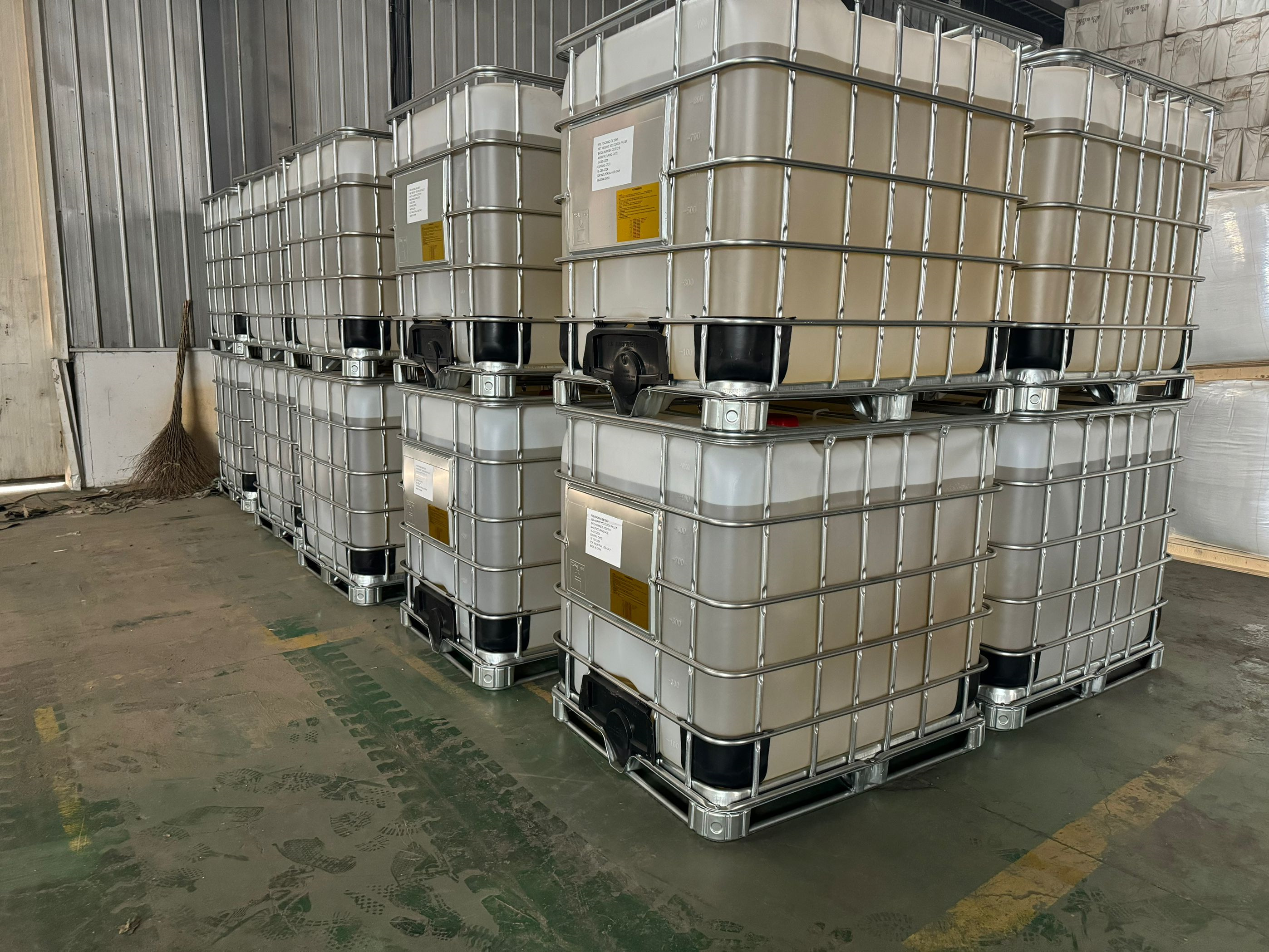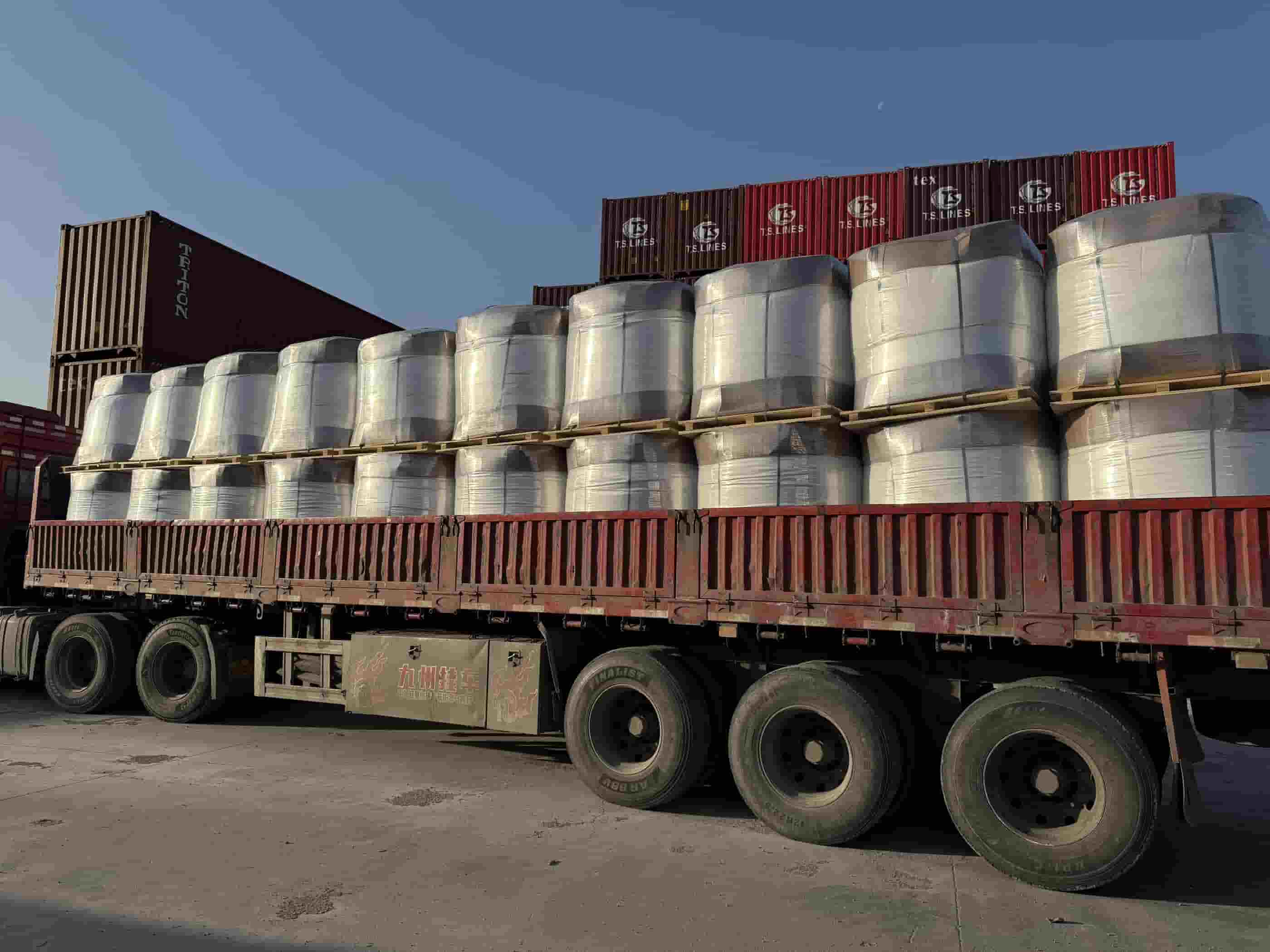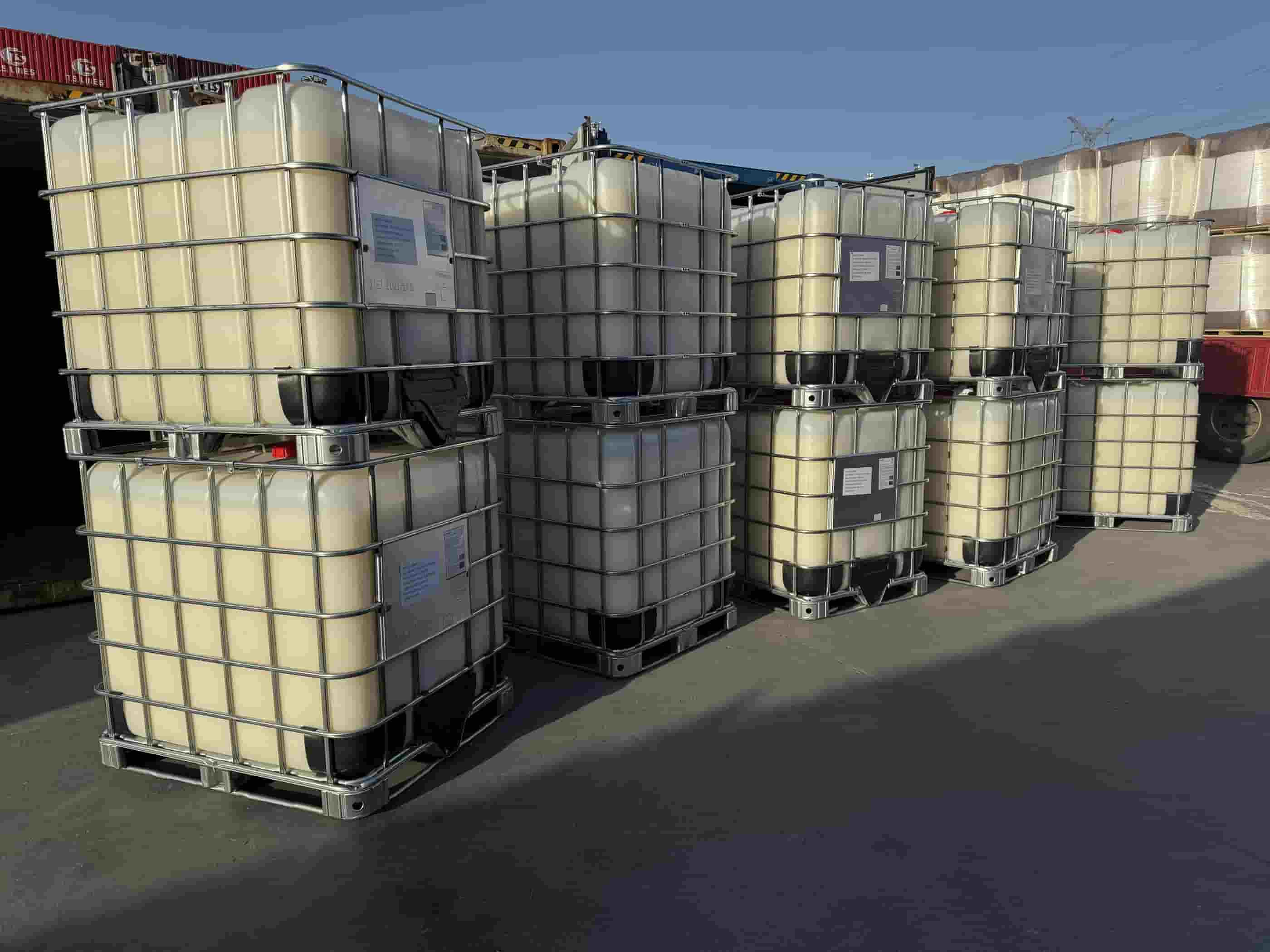Polydiallyldimethylammonium chloride (polyDADMAC) is a widely used cationic polymer in water treatment and oil and gas industries due to its strong positive charge and versatility.
polydadmac manufacturer and polydadmac suppliers in China
Material
- polydadmac
Color
- light yellow
Application
- water treatment ,mineral processing
Certificate
- ISO9001 ,ISO14001
Place of Origin
- China
Other Names
- polydadmac
Brand Name
- asiafloc
Usage
- water treatment ,mineral processing ,textile ,oil and gas
Polydiallyldimethylammonium chloride (polyDADMAC) is a widely used cationic polymer in water treatment and oil and gas industries due to its strong positive charge and versatility. Its high charge density enables it to bind effectively with negatively charged particles, making it ideal for coagulation, flocculation, and emulsion-breaking processes. In this discussion, we’ll cover polyDADMAC’s primary functions in water treatment and oil and gas applications, focusing on its benefits and mechanisms.
PolyDADMAC in Water Treatment
PolyDADMAC plays a significant role in various water treatment processes, including potable water treatment, wastewater treatment, and industrial water treatment. Its strong cationic nature makes it highly effective in removing contaminants, clarifying water, and enhancing process efficiency.
1. Potable Water Treatment
Primary Coagulant: In drinking water treatment, polyDADMAC is often used as a primary coagulant to reduce turbidity, color, and organic contaminants. When added to water, polyDADMAC neutralizes the negative charges on suspended particles, allowing them to aggregate into larger flocs. These flocs settle out more easily, aiding in the removal of suspended solids and other impurities.
Organic Matter and DBP Reduction: Drinking water often contains natural organic matter (NOM), such as humic and fulvic acids, which can react with chlorine to form harmful disinfection byproducts (DBPs). PolyDADMAC binds with these organic compounds, reducing DBP formation and improving water safety.
Color Reduction: Some water sources contain color-causing compounds from natural and industrial sources. By binding with color-causing particles, polyDADMAC enhances the aesthetic quality of drinking water, making it clearer and more appealing.
2. Municipal Wastewater Treatment
Solid-Liquid Separation: In wastewater treatment, polyDADMAC is a highly effective flocculant, helping to aggregate suspended particles for easier sedimentation and filtration. By neutralizing the charges on fine particles, polyDADMAC aids in forming larger flocs, which settle out more readily.
Phosphorus Removal: Excess phosphorus in wastewater can lead to algal blooms in receiving water bodies. PolyDADMAC helps remove phosphates from wastewater by binding with them, forming insoluble complexes that can be removed during treatment, thereby reducing eutrophication risks.
Enhanced Clarification: By facilitating the removal of suspended solids and organic matter, polyDADMAC improves the clarity and quality of treated wastewater, allowing it to meet regulatory discharge standards and protect the environment.
3. Industrial Wastewater Treatment
Heavy Metal Removal: Industrial wastewater often contains heavy metals like lead, chromium, and cadmium. The cationic nature of polyDADMAC allows it to effectively bind with these negatively charged heavy metal ions, promoting their removal through precipitation or adsorption onto sludge.
COD and BOD Reduction: Chemical oxygen demand (COD) and biological oxygen demand (BOD) are critical parameters in wastewater treatment. PolyDADMAC helps reduce these values by aggregating organic contaminants and facilitating their removal, improving the overall quality of treated water.
Oil and Grease Removal: Industrial wastewater may contain oil and grease from processes like food production and metal finishing. PolyDADMAC destabilizes oil-water emulsions, allowing larger oil droplets to coalesce and separate more easily from the water, aiding in efficient removal of oily substances.
4. Sludge Dewatering
Improved Dewaterability: PolyDADMAC is widely used for conditioning sludge before dewatering processes. By binding with water molecules and solid particles, it enhances the dewaterability of sludge, resulting in a higher solids content and reduced sludge volume.
Enhanced Equipment Efficiency: In addition to improving the sludge itself, polyDADMAC enhances the performance of dewatering equipment, such as filter presses and centrifuges, reducing processing time and minimizing water content in the final sludge. This can result in lower disposal costs and more efficient waste management.
5. Cooling Tower and Boiler Water Treatment
Corrosion Control: PolyDADMAC acts as a corrosion inhibitor in cooling and boiler water systems by forming a protective layer on metal surfaces. This barrier prevents contact between metal and water, reducing oxidative reactions and extending the life of equipment.
Scale Prevention: PolyDADMAC also prevents mineral scale formation by interfering with scale-forming ions like calcium and magnesium. This reduces scaling on heat exchange surfaces, thereby improving system efficiency, reducing maintenance needs, and preventing costly shutdowns.
PolyDADMAC in Oil and Gas
In the oil and gas industry, polyDADMAC has essential applications, particularly in produced water treatment, drilling, and demulsification. It supports efficient separation and corrosion inhibition, making it a valuable chemical for improving processes and reducing environmental impact.
1. Produced Water Treatment
Emulsion Breaking: Produced water from oil extraction often contains oil-in-water emulsions, which are difficult to separate. PolyDADMAC acts as a demulsifier, breaking these emulsions by neutralizing the charges on oil droplets and allowing them to coalesce. This separation is essential for treating produced water to meet environmental discharge or reuse standards.
Enhanced Oil Recovery: By separating oil from water more effectively, polyDADMAC enables the recovery of valuable oil from produced water, maximizing production efficiency and reducing waste.
2. Drilling Fluid Conditioning
Rheology Control: During drilling operations, polyDADMAC is used to stabilize and condition drilling fluids. It helps maintain the viscosity of drilling muds under high-temperature and high-pressure (HTHP) conditions, ensuring smooth drilling operations, maintaining borehole stability, and reducing fluid loss.
Improved Cuttings Transport: By enhancing the carrying capacity of drilling fluids, polyDADMAC aids in transporting drill cuttings from the wellbore. This helps prevent blockages, reduces drilling-related risks, and supports efficient wellbore cleaning.
3. Corrosion and Scale Inhibition
Corrosion Prevention: In pipelines, storage tanks, and other equipment, polyDADMAC serves as a corrosion inhibitor. It forms a protective film on metal surfaces, shielding them from corrosive agents like carbon dioxide, hydrogen sulfide, and oxygen, which are commonly found in oil and gas environments. This protection reduces the risk of costly repairs and extends equipment lifespan.
Scale Control: Scaling from minerals such as calcium carbonate and barium sulfate is a common issue in oil and gas systems. PolyDADMAC binds with scale-forming ions, keeping them in solution and preventing deposition on surfaces. This minimizes the need for mechanical cleaning, improves equipment efficiency, and reduces maintenance costs.
4. Emulsion Breaking in Oil Production
Demulsification: In oil production, polyDADMAC helps break stable oil-water emulsions, allowing for efficient separation of oil and water. The positive charges in polyDADMAC neutralize the surface charges that stabilize emulsions, enabling oil droplets to coalesce and separate from the water.
Improved Oil Quality: By reducing the water content in the produced oil, polyDADMAC enhances oil quality, reducing downstream processing costs and maximizing product value.
Mechanisms of PolyDADMAC in Water Treatment and Oil and Gas
PolyDADMAC’s effectiveness in these applications is due to its molecular structure and positive charge, which provide several key mechanisms:
Charge Neutralization: The strong cationic charge of polyDADMAC neutralizes negatively charged particles in water, allowing them to aggregate and form larger flocs that can be removed more easily.
Adsorption and Bridging: PolyDADMAC molecules can adsorb onto particle surfaces, acting as a “bridge” between particles. This promotes the formation of larger flocs and enhances sedimentation and filtration efficiency.
Film Formation: In corrosion inhibition, polyDADMAC forms a stable, protective film on metal surfaces, preventing oxidative reactions and reducing corrosion risks.
Emulsion Destabilization: In oil and gas, polyDADMAC destabilizes oil-water emulsions by neutralizing surface charges, allowing for more efficient separation.
Advantages of PolyDADMAC in Water Treatment and Oil and Gas
PolyDADMAC offers several benefits in water treatment and oil and gas applications:
Cost-Effectiveness: PolyDADMAC often requires lower doses than traditional coagulants, reducing chemical costs and minimizing sludge volume.
Versatility: Its effectiveness in potable water, wastewater, and oil and gas applications makes polyDADMAC a valuable multi-purpose treatment chemical.
Environmental Compliance: By enhancing contaminant removal, sludge reduction, and oil-water separation, polyDADMAC supports compliance with environmental regulations and sustainability goals.
Improved Equipment Longevity: PolyDADMAC’s corrosion and scale inhibition properties help extend equipment life, reduce downtime, and lower maintenance costs.
Conclusion
PolyDADMAC is a highly versatile and effective cationic polymer used in water treatment and the oil and gas industry. Its applications range from potable water clarification and heavy metal removal to demulsification and corrosion inhibition in oil extraction processes. Through mechanisms such as charge neutralization, adsorption, and emulsion destabilization, polyDADMAC significantly improves treatment efficiency, supports regulatory compliance, and reduces operational costs. Its multifunctionality and cost-effectiveness make polyDADMAC an indispensable chemical across these sectors, enhancing process reliability and environmental performance.





551.jpg)
